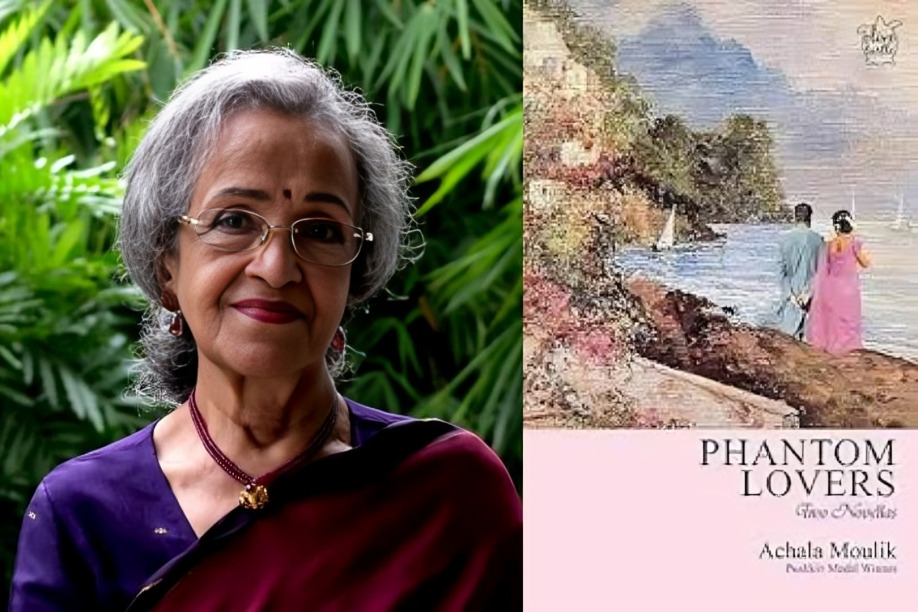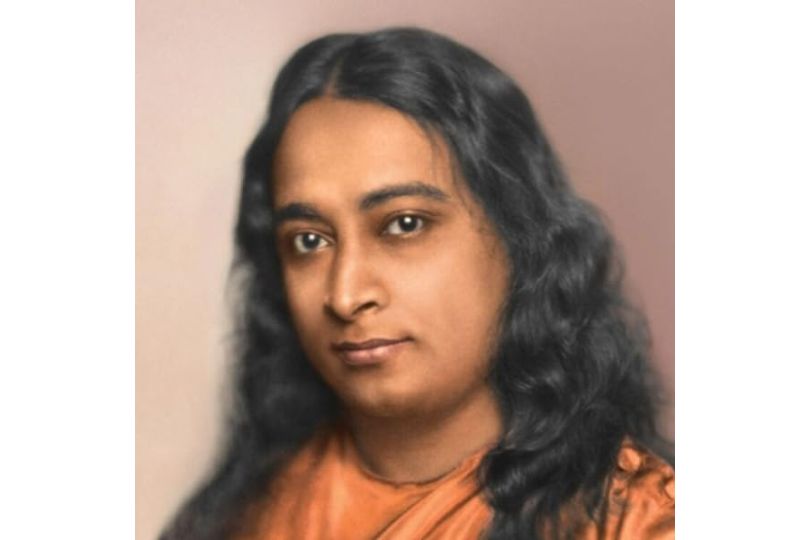Interview with Achala Moulik Author of "Phantom Lovers: Two Novellas"
Dive into the literary world with Achala Moulik, author of 'Phantom Lovers: Two Novellas.' Explore her insights and inspirations in this captivating author interview on Frontlist.on Feb 27, 2024

Achala Moulik, born in Calcutta in a family of scholars and diplomats, went to schools in Washington, New York, and London, where her father Moni Moulik was posted on diplomatic assignments. She graduated in Economics, Political Science, International History, and Law from London University. Thereafter, she studied Italian Renaissance in Rome. Her civil servant and writer husband Mohandas Moses encouraged her literary endeavors. After graduation, Achala joined the Indian Administrative Service. She has worked in various capacities, among them as Education Secretary, Government of India when the national education program 'Sarva Shiksha Abhiyan' was formulated and as Director-General, Archaeological Survey of India.
She has published books on international relations, political and cultural history, along with biographies on Tagore and Tolstoy, four acclaimed novels, and a collection of poetry. Her play 'Pushkin's Last Poem' was staged in Moscow and Petersburg to a standing ovation. For her contribution to Russian history and literature, Achala received the Sergei Yesenin Prize and the prestigious Pushkin Medal from the Russian Presid
Frontlist: What inspired the creation of "Phantom Lovers," and how did you come up with the idea of intertwining two distinct love stories across different time periods and locations?
Achala: The two novellas were inspired by the experiences of two women close to me – my sister and a distant cousin. The central theme of both stories is about overcoming ordeals and separations in pursuit of love and happiness. In the first novella, “With Fate Conspire” - my sister’s story - I added a strong hint of reincarnation and Deja vu –of having experienced something similar. So, I had to take Radha / Madhusri through the turmoil of the Indian Mutiny to the serenity of modern London. In the second novella, “Wait!” a young Indian woman becomes involved with an Afghan aristocrat. What could have been a romantic idyll in London and Rome suddenly plunges into despair when a violent military coup takes place in Afghanistan in which the young Afghan is caught and faces execution.
Frontlist: In developing the characters for the romantic relationships in "Phantom Lovers," can you elaborate on your process and whether there were specific qualities or traits you aimed to highlight in the protagonists to convey the intensity of their love stories?
Achala: Influenced by classical literature (which was not in the curriculum of my university studies), there is an emphasis on the “transformation” of characters of their response to challenges as well as triumphs. The characters do not remain static in their behaviour or ideas. Take Sydney Carton in “A Tale of Two Cities” where a wastrel and wayward lawyer is transformed by his love to become a reckless hero. All four main characters in my novel react to their changed circumstances with courage and patience. And these attributes take them forward to meet the ordeals.
Frontlist: Having graduated from London University with a degree in Economics, History, International Relations, and International Law, how did your academic background contribute to the historical and geopolitical aspects depicted in the book?
Achala: Again, I return to classical traditions. In order to raise love stories to a higher and enduring level, it is necessary to set the stories and characters against the social, political, or historical events of their Time. Certainly, as a student of history, political science, and international relations, the wider events of our Time have fascinated me. Our parents’ generation saw transformational changes with epochal revolutions, a world war, the dismantling of mighty empires, and the emergence of new national states. These events have impacted millions of lives in numerous ways, providing opportunities to some and bringing despair to others. Great novels have been written in the aftermath of these geopolitical events – Rabindranath Tagore, Ernest Hemmingway, Erik Maria Remarque, Mikhail Sholokhov, and Giuseppe Lampedusa.
Frontlist: In "Phantom Lovers," with two distinct stories— "With Fate Conspire" and "Wait!"—how are they related to each other, and what sets them apart? Additionally, do you have a personal preference between the two narratives, and if so, why?
Achala: As stated above, the two stories are united by a common theme – of hope and courage in the midst of danger and despair. What sets them apart is that "With Fate Conspire" is the story of two lovers separated by the tyranny of Time, and the two lovers in "Wait!" are separated by terrestrial Space. But they cross the frontiers of Time and Space, of the differences of race and religion, to find fulfilment. I have no preference between the two. Both stories are part of my own existence.
Frontlist: Balancing the romance and historical context is delicate. How did you ensure the love narratives stayed poignant while offering insights into historical events? Were there instances where you adjusted historical details to suit the love story's requirements?
Achala: The phenomenon of Time has always fascinated me. History is a chronicle of this elusive entity, which we call Time. In the modern world, clocks and calendars measure Time and in older days, sundials, hourglasses, and even stars at night and daytime shadows measured hours. Our existence is wrapped in Time within which events are enacted. Human existence is shaped by events of both the past and the present and sometimes in expectation of the future. So it is not difficult to describe emotions against the framework of historical events. The great epics of India, Firdausi’s Shah-nama, Tolstoy’s War and Peace, Shakespeare’s Antony and Cleopatra, and Victor Hugo’s Les Miserables have narrated human destinies and love against the tempest of Time. I have taken them as my models and have not adjusted historical details to the stories.
Frontlist: How did you seamlessly weave historical events into the narrative of "Phantom Lovers" to ensure a smooth and engaging flow, particularly for readers with limited interest or no prior knowledge of history, making the story accessible and understandable to a wide audience?
Achala: Thank you for the praise. Literature becomes great when it attains universality. That is, a novel, a poem or a play must reflect emotions, predicaments, and passions that most individuals experience in the course of their lives. Then it has wide appeal and engages the reader’s interest. It is this universality that writers strive for – to touch the human heart and mind. Historical events provide the setting to human experience.



.jpg)






.jpg)

.jpg)
.jpg)

.jpg)
.jpg)
.jpg)










Sorry! No comment found for this post.